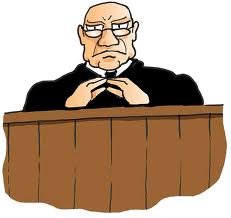Internet Censoship is the 21st century equivalent of book burning. You cannot be inspired or educated by a book that you’ll never read, and you will never read that book if it is destroyed. In 1933 the German Nazi Party began it’s campaign of burning books that didn’t correspond with Nazi ideology. Censorship has always been a favorite tool of authoritarians because it limits peoples access to information and silences dissent within the population.
However the existence of the Internet has now made book burning largely redundant because books no longer need to be printed and shipped to those who will read them. Now ideas can be posted online where they are accessible anywhere in the world. I do not need to print pages of this site and send them off in the hope that someone might read them, instead I can post things here on my own corner of the web and anyone with an internet connection can access them. The internet provides a sort of immunity to book burning because not only can ideas be easily accessed without the need to ship a tangible item but they can also be electronically copied an infinite amount of times. Even destroying the server that hosts a particular website cannot guarantee that the ideas have not been copied and made available elsewhere.
But governments do not give in very easily. While there may not be many books left to burn there are still ideas that may need to be silenced. So authoritarian governments of the 21st century have come up with the idea of Internet Censorship. It may be impossible to burn the pages of a website but if the government can prevent people from accessing that website then the end result is the same as burning a book. People cannot be inspired or educated by an idea that they never read. Dissent can be silenced without the need to destroy all copies of the original.
Here in Australia the Gillard Government has plans to introduce legislation that will require all Internet Service Providers to block access to content that is “Refused Classification” that is any content that the Australian Government has deemed undesirable for public consumption. In 2009 Wikileaks released to Australian Governments blacklist of website that it wants banned for all Australians.
University of Sydney associate professor Bjorn Landfeldt said the leaked list “constitutes a condensed encyclopedia of depravity and potentially very dangerous material”.
He said the leaked list would become “the concerned parent’s worst nightmare” as curious children would inevitably seek it out.
But about half of the sites on the list are not related to child porn and include a slew of online poker sites, YouTube links, regular gay and straight porn sites, Wikipedia entries, euthanasia sites, websites of fringe religions such as satanic sites, fetish sites, Christian sites, the website of a tour operator and even a Queensland dentist. –Sydney Morning Herald
It seems like nobody in Australia is safe from the Gillard Governments censorship regime. Many of us already know better than to run our website off servers located within Australia, but this regime of censorship is aimed at everyone. It doesn’t matter if your content is 100% legal the Australian Government may still silence you at their own discretion. Some people who find themselves on the government blacklist already reside within Australia. So I think it’s fair to ask; Why are they not arrested if the content of their website is so bad? The answer is of course that many of the websites that our government wishes to censor are not actually illegal. If the blacklisted content was illegal they would at least arrest the people who own it and live in Australia.
Internet Censorship is the 21st century version of Book Burning. Essentially a Book Burning 2.0 and it must be stopped at any and all opportunities. The internet gave us the freedom to share and discuss ideas without boundaries and those in power seek to reinstate those boundaries and limitations on behalf of vested interests. Silencing Dissent is the dream of every authority but it must not be allowed to happen here in our western democracy.
